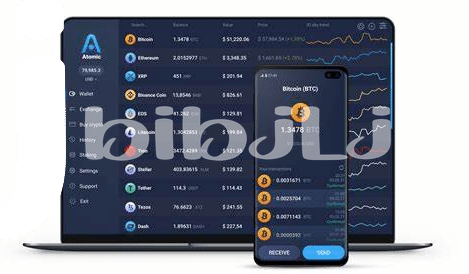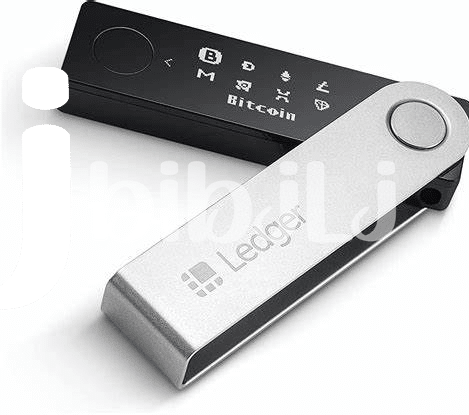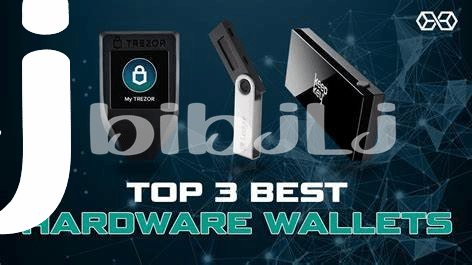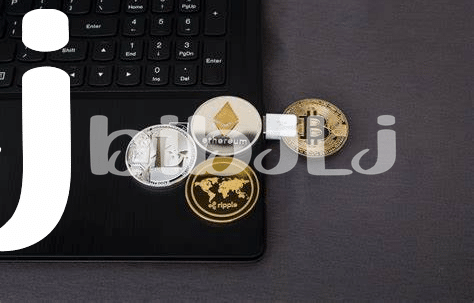🕵️ Understanding Different Types of Bitcoin Wallets

Think of Bitcoin wallets as your own digital pocketbook, where you can store, send, and receive Bitcoin securely. Just as we have different types of physical wallets – from those we carry in our pockets to safes in our homes – Bitcoin wallets come in various forms. Each type serves a unique purpose and offers a different blend of security and convenience. Here’s a simple breakdown:
| Type | Description | Best For |
|---|---|---|
| Hardware Wallets | Physical devices that store Bitcoin offline. | High security with less frequent transactions. |
| Software Wallets | Apps that you can download to your computer or phone. | Everyday use with easy access. |
| Web Wallets | Online services that manage your Bitcoin for you. | Convenient access from any device. |
| Paper Wallets | Physical documents that contain your private and public Bitcoin keys. | Ultimate security with cold storage. |
Choosing the right Bitcoin wallet is like picking out the perfect pair of shoes; it’s all about finding the right balance between comfort (ease of use) and protection (security).
🔒 Prioritizing Security: What to Look for
When deciding on a Bitcoin wallet, imagine it as your digital treasure chest where you keep your precious bitcoins. The locks on this chest are really important because they protect your treasure from thieves and hackers. Look for features like two-factor authentication, which works like a double lock, making it twice as hard for intruders to break in. Also, a wallet that regularly updates its security measures is like a chest that can magically strengthen its walls against attacks. Keeping your digital gold safe should be your top priority, so choosing a wallet that goes the extra mile to protect you is essential.
Another key aspect is recovery options. Think of this as having a magical map that leads you back to your treasure if you ever lose the key. Wallets that offer secure recovery methods ensure that you can always retrieve your bitcoins, even if something goes wrong. This can include backup facilities or recovery phrases that act as a lifeline to your assets. Remember, in the vast and sometimes wild world of Bitcoin, having a safety net can make all the difference. So, when reviewing your options, make sure your Bitcoin wallet offers both strong security features and a reliable way to recover your funds if needed. For more insights, explore how Bitcoin’s future is represented in speculative fiction at https://wikicrypto.news/ai-predictive-models-revolutionizing-bitcoin-trading-strategies.
📱 Ease of Use: Finding User-friendly Options

When it comes to stepping into the world of Bitcoin, finding a wallet that feels like a friendly companion rather than a complex puzzle is key. Think of your Bitcoin wallet like a digital pocketbook; you want something that’s not only easy to open but also simple to use, wherever you are. The best wallets are those where checking your balance, sending, and receiving bitcoins is as straightforward as sending a text message. Look for wallets with an intuitive interface, ones that make it clear where every button and feature is without needing a magnifying glass or a degree in computer science. A good wallet will guide you through its features with helpful hints and perhaps even a tour when you first sign up. This isn’t just about making life easier; it’s about ensuring you feel confident and secure every time you use it. Remember, in the fast-paced world of cryptocurrency, the time you spend trying to figure out how to use your wallet is time you could be using to make decisions that affect your digital currency journey.
✈️ Portability: Wallets on the Go

In a world where being on the move is the norm, carrying your digital life with you is crucial, and this includes your bitcoin wallet. Imagine being able to make transactions or check your balance from anywhere in the world without being tied to a single device. This is where the magic of mobile bitcoin wallets comes into play 📲. They’re designed for people who are always on the go, ensuring that access to your digital currency is just a tap away, no matter where your adventures take you. But it’s not just about having a wallet that travels with you; it’s about ensuring that this convenience doesn’t compromise security or functionality. With options for both Android and iOS devices, there’s a sea of apps waiting to be explored. However, diving into the ocean of mobile wallets requires a bit of guidance to avoid the nets and hooks of inconvenience and high fees. For those of you looking to dive deeper into the world of bitcoin and its evolution, including insights into how it’s making waves in literature and film, check out bitcoin in literature and film suggestions. Remember, choosing the right wallet isn’t just about keeping your digital coins somewhere; it’s about ensuring peace of mind, knowing your treasure travels safely with you, regardless of where your journey takes you. 🌍✈️💼
💸 Fee Structures: Avoiding Unnecessary Costs
When looking for a Bitcoin wallet, it’s important not to overlook the cost aspect. Just like shopping for a good, reliable car, we don’t want the upkeep to drain our pockets. Many wallets offer different services and, with that, come varied fee structures. Think of these fees as the fuel for your wallet; they’re necessary for your transactions to zoom through the blockchain smoothly. However, fees can vary widely. Some wallets charge you for every transaction, while others might have a flat rate. It’s sort of like choosing between a car with great gas mileage versus one that guzzles gas. Finding a balance between reasonable fees and quality service is key to ensuring that more of your money stays in your pocket where it belongs.
Understanding these fees can feel a bit like decoding a secret message, but it’s simpler than it seems. Here’s a quick breakdown to help you see at a glance how fees can compare.
| Wallet Type | Transaction Fees | Other Fees |
|---|---|---|
| Online Wallets | Variable, often lower | May include service or subscription fees |
| Hardware Wallets | Generally higher per transaction | Upfront cost for the device |
| Desktop Wallets | Medium, depends on network fees | Rarely any additional fees |
| Mobile Wallets | Comparable to online wallets | May have app-related fees |
Selecting the right wallet means understanding this expense playbook. By aligning your wallet choice with your budget and how often you plan to use it, you can dodge those unwanted financial surprises. It’s all about ensuring your Bitcoin journey is both enjoyable and affordable.
🔄 Compatibility: Ensuring Smooth Transactions

When hunting for the perfect Bitcoin wallet, thinking about how well it plays with other services and cryptocurrencies is like checking if your smartphone can easily share files with different devices. Imagine you want to send some Bitcoin to a friend, trade it for another cryptocurrency, or buy that cool gadget you found at an online store. If your wallet doesn’t mesh well with others, you might be in for a headache. This is why finding a wallet that talks smoothly with the wide world of Bitcoin and cryptocurrencies is key. It’s like having a phone that works well both at home and abroad; you’re looking for that universal adapter in the crypto world.
Ensuring your wallet can handle various tasks without fuss is a big deal. You wouldn’t want to miss out on a great opportunity just because your wallet wasn’t up to speed, right? For a deeper dive into how all this works, especially when dealing with changes in the Bitcoin network itself, peeking into bitcoin forks and their impact suggestions could shed some light on the subject. It’s akin to understanding how updates to your phone’s operating system might affect how your apps run. Always aim for a wallet that not only keeps your Bitcoin safe but also ensures you can join in on the action without hitting unnecessary roadblocks.
